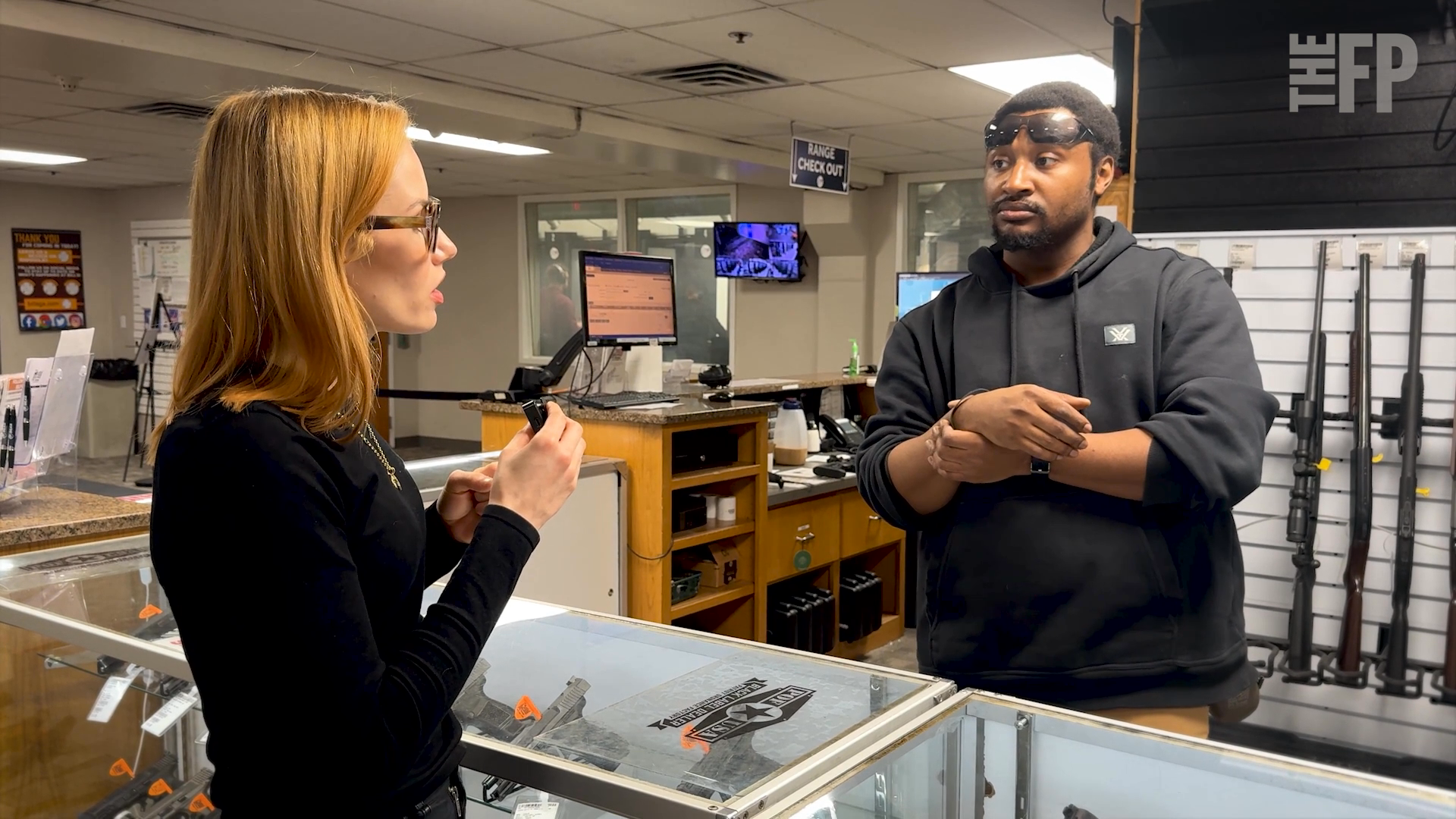Are gun stocks helping fund your retirement?
Millions of Americans own guns and may not even realize it.
That is, they own stakes in the companies that make guns. That's because dozens of widely owned funds in 401(k) plans and other retirement and investment accounts own stock in publicly traded firearms manufacturers, including the makers of assault-style weapons often used in mass-shooting incidents.
The shares appear in both actively managed funds and passive index investments. For instance, large holders of Sturm, Ruger & Co. (RGR) include the Growth Fund of America and Vanguard Small-Cap Index Fund, Morningstar data shows. American Outdoor Brands (AOBC), owner of the Smith & Wesson brand, are held by the Vanguard Strategic Equity and Invesco Small-Cap Value funds. And Vista Outdoor (VSTO) appears among the holdings of the Fidelity Value and Vanguard Total Stock Market Index funds.
About 35 percent of US stock funds include investments in a maker or retailer of guns and ammunition, which adds up to more than $17 billion spread across more than 2,000 funds, according to a tally by a nonprofit advocacy group called Goodbye Gun Stocks. The group also classifies retailers that sell firearms -- including Walmart (WMT), Cabela's (CAB) and Dick's Sporting Goods (DKS) -- as gun stocks.
The group's website allows investors to check whether their funds contain firearms-related stocks, then quickly determine how much of their own money is invested in them. (To find out which funds are available in a given company's retirement plan, check BrightScope.)
Firearms manufacturers are best suited for private ownership so all of their holders know exactly what they own, said Roger Lee, a senior equity research analyst at investment manager Kirr Marbach & Co. in Columbus, Indiana, who follows firearms stocks, among other sectors. But as long as firearms companies are publicly traded, he said, and even though they often account for only a small portion of funds that invest in them, fund managers should proactively disclose those stakes.
And perhaps, managers should avoid them altogether if their investors -- once they know where their money is going -- would be likely to object.
"A lot of individuals probably would be repulsed if they thought they were indirectly accountable or profiting from companies that are producing these weapons," said Lee, a hobbyist gun owner who has collected more than 20 firearms and goes shooting a few times a month. He described himself as a responsible gun owner who is "pro-regulation."
Firearms companies represent just one category of so-called "sin" stocks -- alongside the likes of alcohol and cigarette companies, casinos and sex-related industries -- which some investors have begun to shun.
Lee suggests adding another group to those sin stocks: drug companies that get most of their revenue from highly addictive opioids.
"The biggest epidemic in America is in the portfolios of countless retirement funds," Lee said. "It's a drug company, and people don't see it as a prescription pain-pill mill that ultimately creates a lot of drug addicts in America."
But it's rare to find employer retirement plans that offer investors access to funds that focus on "socially responsible" options in part because there's no "groundswell" of requests for them, said Divam Mehta, president of Richmond, Virginia-based Mehta Financial Group.
And if employees aren't asking, their companies probably aren't pushing the fund giants that administer retirement plans -- think Vanguard, Fidelity and American Funds -- to include portfolio options that filter out sin stocks.
"If you give an investor an option, I think they'll do it," Mehta said. "But I think it has to be marketed in that way, and the awareness has to be there. I think a lot of investors don't realize it's possible to achieve a diversified portfolio and stick to socially responsible investing."
In the fund industry, this approach to investing is known by the acronym ESG, representing the environmental, social and governance criteria fund managers utilize. Two big players offering socially responsible funds are Pax World and Calvert Funds, noted Mehta, who has built portfolios for clients using these funds' offerings.
Another option for investors without access to ESG funds in their retirement accounts is to check individual funds or pick funds by asset class. Gun manufacturers typically fall in the mid-cap to small-cap category, Mehta said, so an index or exchange-traded fund tracking the large-cap S&P 500 is unlikely to contain firearms manufacturers.
Even among companies that make guns, investors may want to consider more specific distinctions based on product lines, Lee suggested.
For instance, two companies that sell full lines of AR-15-style firearms are the publicly traded Sturm, Ruger and American Outdoor Brands. On the other hand, Vista Outdoor's products are more specifically geared toward recreational hunters, Lee said.
The California investment firm where Lee previously worked screened out gun stocks, in part because they made its investor base uneasy. His current firm, in the gun-friendly state of Indiana, owns shares of Sportsman's Warehouse Holdings (SPWH), a sporting-goods store that serves rural areas where hunting is popular.
Gun companies and their stocks have struggled since the election of Donald Trump eased gun-owner concerns about the potential for tighter regulations. Sturm, Ruger's stock price is down about 20 percent on the year.
The slack demand means better deals for gun owners like Lee, who landed a $75 rebate on a new handgun. He noted that firearms manufacturers view their offerings as "a very high-end consumer discretionary product."
The message? No matter where investors stand in America's contentious debate over guns, they should know what they're buying.



